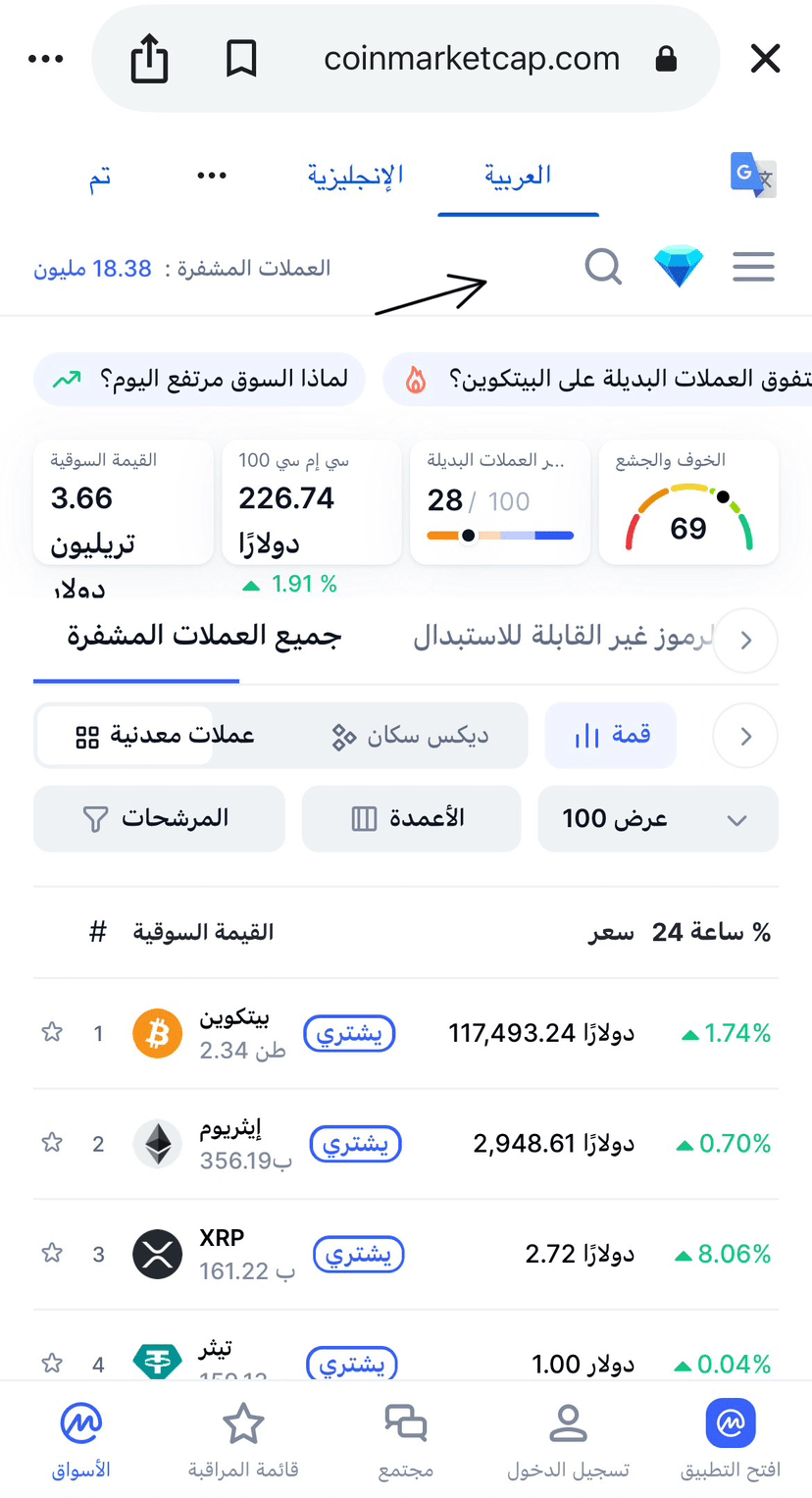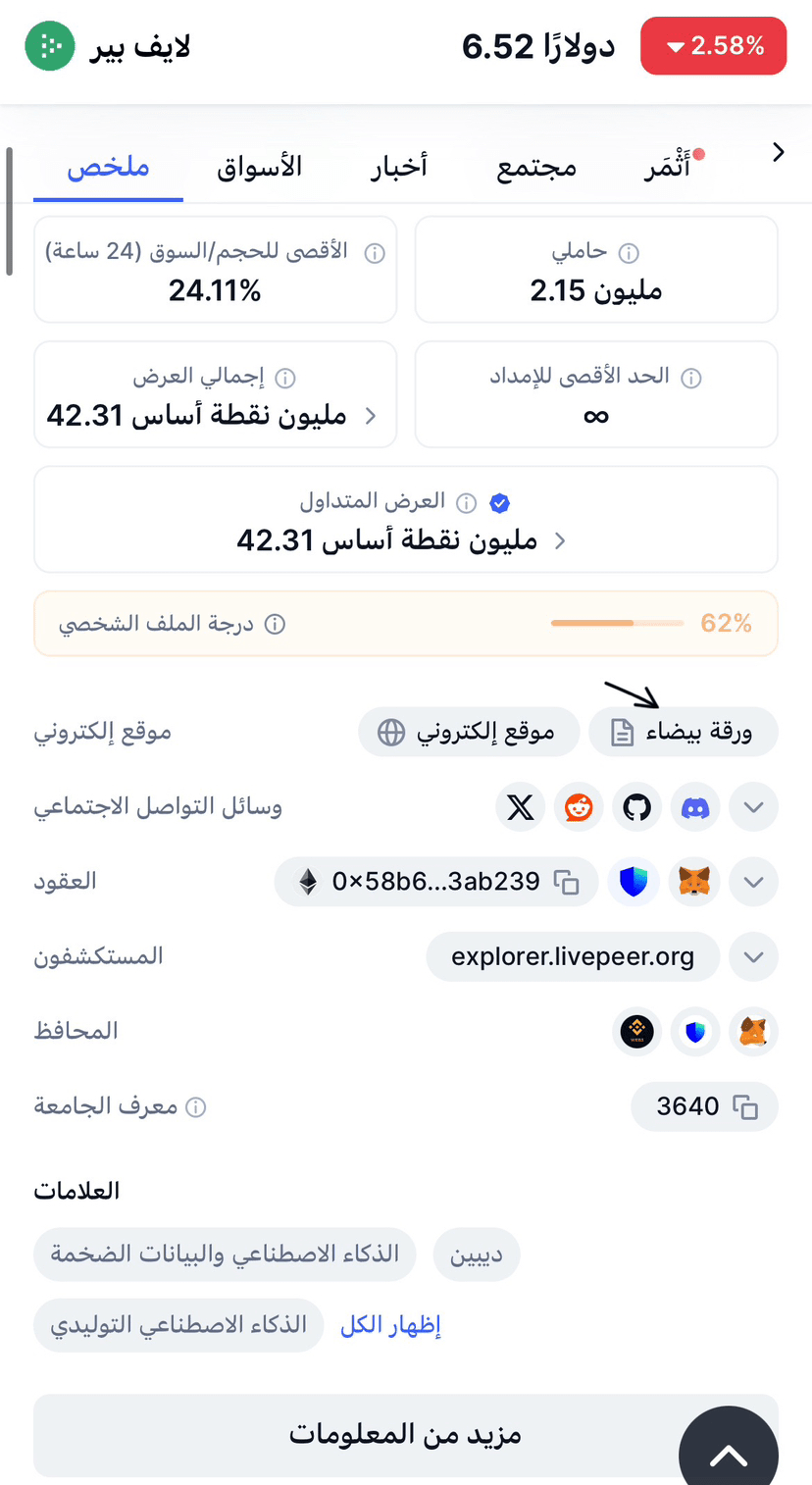In the world of cryptocurrencies, many people enter without asking the most important question:
“Is the currency I buy or speculate on, halal or haram?”
And this question is not only Sharia, it is also a gateway to safety and trust in your financial decisions.
First: Are all cryptocurrencies forbidden?
Definitely not. But not every currency is automatically considered halal, let me simplify the picture for you:
Currencies are divided into types:
Currencies without any real project (like meme coins).
Like SHIB and Pepe and others, which are currencies often not based on a real project or real utility, but just a trend or a joke.
❌ The reason for its prohibition? It falls under the category of uncertainty that the Prophet (peace be upon him) prohibited, because you are buying something whose true value you do not know, nor what it depends on, nor who controls it.
So it is not suitable for speculation or investment, as it is more like gambling.Currencies with a real project.
Here we must distinguish:✅ Halal projects: These are projects that provide a real service or technical solution, and do not deal with usury or forbidden activities.
Example: Blockchain infrastructure projects, or decentralized storage networks, provided that their funding and content are clean.❗️ Projects tainted with usury: like projects that rely on lending for interest, or profit from trading compound interest (like some decentralized finance projects).
Like: (1. Lending/borrowing protocols like Aave and Compound)
and (2. some stablecoins backed by usurious tools like U.S. treasury bonds).⚠️ Mysterious projects: Here lies the danger… the project seems clean, but you find that the project owner hides information, or there are tokens owned by suspicious wallets, or there are hidden fees that affect traders.
We do not directly say these currencies are haram, but they are a strong suspicion, and “leave what makes you doubt for what does not make you doubt.”
After understanding that cryptocurrencies are not all the same, and that some are halal and some are haram and questionable, now we come to the most important question:
How do I use the whitepaper to know the ruling on the currency?
The whitepaper is the official document that describes the currency project: its idea, goals, how it works, profit method, and token distribution. It is the heart of the project, and if you read it correctly, you can discover everything—even if the project owner tries to polish their image.
Step 2: Observe these points from a Sharia perspective:
✅ Does the project have a real purpose?
Does it provide a real or technical service to users? Or is it just a promise of profit without any guarantee?
If it is just buying and selling or a promise of unknown future profits — this involves uncertainty.
❌ Is there usury involved?
Does the project offer lending services with interest?
Is there direct dealing with forbidden financing tools (like treasury bonds or compound interest)?
Is the currency backed by the dollar through usurious banks? (like USDC or Tether without clear coverage?)
If yes, then there is a suspicion of explicit usury.
⚠️ Does the token have utility?
Is it only for speculation? Or is it not clearly used within the project?
A token without actual utility is merely a speculative asset – and here lies a strong suspicion.
🔍 Is everything clear?
Who is the team?
Who holds the governance?
How are the tokens distributed?
Are there hidden fees?
Can one person control the project?
If the answers are vague, this opens the door to fraud or financial injustice.
Step 3 and most importantly: A magic phrase for automatic currency analysis.
After learning how to read the whitepaper, there is a smart way to make anyone (even a beginner) quickly understand the ruling.
Copy this phrase and send it to ChatGPT with the link to the whitepaper:
And tell it as follows:
“Analyze this currency from a Sharia perspective based on its activity, the utility of the token, profit methods, and its dealings with usury or forbidden activities, through the link to the whitepaper:”
Step 4: Apply what was explained step by step.
How or from where do we get the whitepaper? Open the Coin Market Cap app on Google browser:
Search for the name of the currency, let's say the name is LPT.

After you write the name of the currency "in the search list", it will appear, click on it and scroll down to find the word whitepaper, depending on your phone you might find the link copy option by clicking or long pressing on the word whitepaper.

Then open the ChatGPT app.
Tell it this:
Analyze this currency from a Sharia perspective based on its activity, the utility of the token, and its dealings with usury or forbidden activities, through this link (the whitepaper) and explain to me the project's benefit if it were real and its benefit to the community and employees.
Why? In reality… so you can have a vision of each currency in its true form easily:
Then it will ramble a lot, so you tell it as follows to get the gist easily:
Summarize what I said as if we were sitting together in a café.
Here, and each one with a cup of coffee ☕, and I ask you: “Hey, is this currency LPT halal? And does their project really have value?He told me the following:
Look, the Livepeer (LPT) currency is not an ordinary project, they are working on the idea of video streaming, instead of platforms using huge expensive servers like Amazon, Livepeer provides a cheaper and decentralized way, allowing anyone to participate in video conversion and broadcasting and earn money for their work.
So for example, you and I can run devices and participate in the network and earn tokens in exchange for real services, not just interest or usury.
From a Sharia perspective?
From what I read and understood.
The currency does not involve usury.
It is not used in gambling or anything forbidden.
People earn from real work (operating devices, encoding videos… etc.), not guaranteed profits.
The token's function is technical, not purely financial.
So the situation is comfortable from a Sharia perspective, of course, that doesn’t mean it is free from risk, because the cryptocurrency market is inherently volatile.
Okay, if this project were real?
Imagine there is a company saying: “Instead of paying thousands of dollars to broadcast an event or seminar, we use Livepeer, cheaper, open-source, and it works with people from around the world.”
The community benefits because anyone with a device can participate and earn, and the media is not restricted to large companies.
And the employees?
I mean, you can work with the network, even from home, run your device, and earn real work without a boss or a schedule.
In summary, as if it were from me to you:
As long as you haven't entered into the intentions of earning usurious profit or used the currency in a way that contradicts, you can enter it with a clear conscience. Just work with your mind and study before putting your money in, like any project in the world.
💡 And thus you have learned the summary…
You have become able to discover the Sharia ruling of the currency easily, even if its concept is complicated. Why?
Because you did not rely on luck or the words of people… but used your mind and the whitepaper to analyze the project from its roots.
And from today, any currency that comes your way, you will be able to understand its situation:
Is it really halal? Or does it have a suspicion? Or is it just an illusion wrapped in usury?
And God willing, the explanation is clear and simple — if you benefited: share the article and spread the benefit.
✋ And in conclusion: Ghazwan teaches you to build your awareness by yourself.
What distinguishes you from others is that you do not follow random recommendations, nor do you stop at:
“So-and-so said halal and so-and-so said haram.”
But you learn to judge with your mind… and your thinking… and your conscience, according to Sharia guidelines and practical foundations.
⛔ Remember:
Every transaction you make, you will be asked about it.
Because every penny you earn… there is a question:
Where did you earn it from? And what did you spend it on?
So make good intentions, and improve your understanding.
And we always ask God for a good ending and lawful sustenance.
💬 Always with you…
Ghazwan – Crypto Leader
For a conscious, free, and committed generation.



